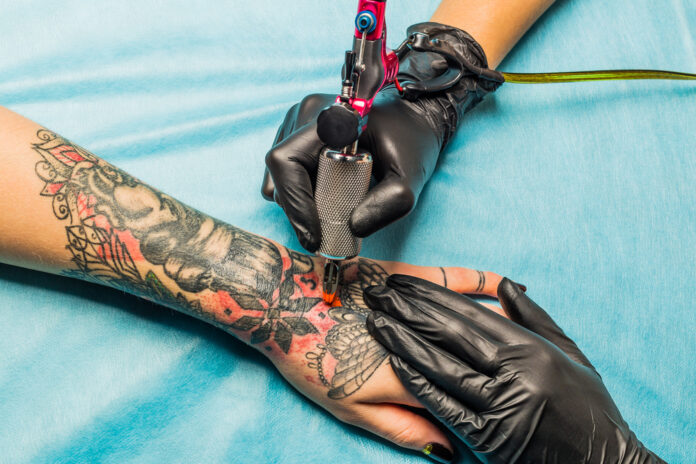
Tattooing is a long-standing and popular form of self-expression. There is evidence that tattooing is an ancient art form, as tattoos have been found on mummified skin from hundreds of years ago. Though the cultural significance of a tattoo can change, they are popular in many societies for several reasons.
From a health perspective, however, what kind of risks do tattoos subject our skin to?
How Does a Tattoo Work?
As you may know, a tattoo is a permanent piece of art that is put on your skin using multiple thin, fine needles. These needles release ink into the top layer of your skin, therefore creating a permanent image.
Today’s tattoo artists use electric guns that pierce the skin with multiple tiny needles at once. Tattooing causes moderate pain and swelling at the site, but this subsides in just a few hours for most.
Potential Risks of Tattoos
At the end of the day, any time a needle is meeting an organ (like your skin), there are inherent risks to be aware of.
Allergic Reactions
Good tattoo artists will survey you about existing allergies before you get inked. This is because some people can be allergic to the dye used in the ink – especially, red, green, or blue tattoo ink. However, a very small percentage of people may be unaware they have this allergy until they try to get a tattoo.
Skin Infections
You can think of a tattoo the same way you think of a scrape – it’s a large surface of your skin that is now open and vulnerable to germs. Good tattoo artists will provide detailed aftercare to ensure your tattoo stays clean and sterile. However, failing to follow these steps can lead to skin infections.
Bloodborne Disease
If you visit a shop that has poor sterilization practices, you could end up sharing a tattoo needle with another patron. This means another person’s blood, and whatever bloodborne diseases they may have, could pass to you. This is easy to avoid by qualifying the tattoo shop you are visiting is reputable, clean, and knowledgeable.
Conclusion
Tattoos are not inherently bad for you. In fact, most people sporting ink on their bodies have nothing but pleasant experiences with their tattoos. However, some possible risks must always be assessed before jumping in headfirst.
By visiting a clean and reputable shop, assessing your allergies and sensitives beforehand, and making sure to take superb care of your tattoo during healing, you should have no issues with new ink.


















